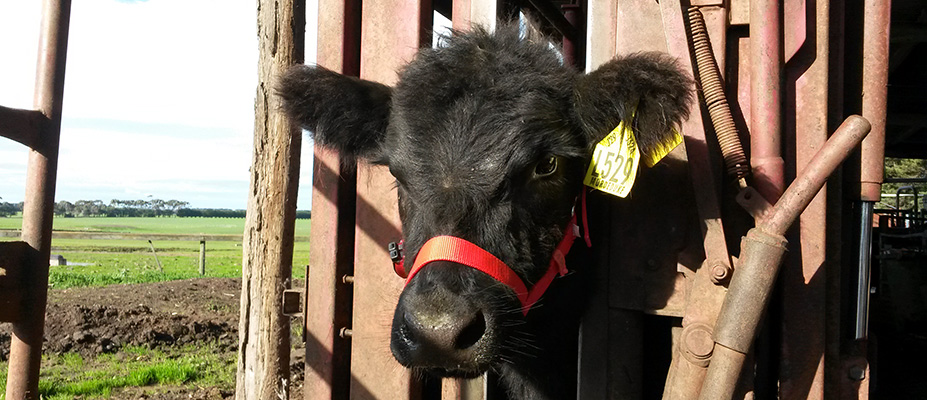

Open data and interoperability standards: Opportunities for animal welfare in extensive livestock systems
PhD: Chris Bahlo
Supervisors: Assoc Prof Peter Dahlhaus and Prof Helen Thompson
Thesis: Open data and interoperability standards: opportunities for animal welfare in extensive livestock systems ![]()
Year commenced: 2016
Year completed: 2021
Research overview
Extensive livestock farming constitutes a sizeable portion of agriculture and contributes to feeding a growing human population. The livestock industry is adopting technologies under the banner of Precision Livestock Farming (PLF) to help meet higher production and efficiency targets as well as help to manage the multiple challenges impacting the industry, such as climate change, environmental concerns, globalisation of markets, increasing rules of governance and societal scrutiny especially in relation to animal welfare. PLF is particularly dependent on the acquisition and management of data and metadata and on the interoperability standards that allow data discovery and federation. A review of interoperability standards and PLF adoption in extensive livestock farming systems identified a lack of domain specific standards and raised questions related to the amount and quality of public data which has potential to inform livestock farming. A systematic review of public datasets, which included an assessment based on the FAIR principles (data must be findable, accessible, interoperable and reusable) was developed. Custom software scripts were used to conduct a dataset search to determine the quantity and quality of domain specific datasets yielded 419 unique datasets directly related to extensive livestock farming. A FAIR assessment of these datasets using a set of general metrics showed a moderate level of compliance and suggest that domain specific FAIR metrics may need to be developed. A case study was designed to explore the potential of public datasets in informing decision support in relation to livestock welfare, using the scripts previously developed. Welfare elements were extracted from Australian welfare standards to guide a dataset search. It was found that with few exceptions, these elements could be supported with public data. The development of a geospatial animal welfare portal including these datasets explored and confirmed the potential for using public data to enhance livestock welfare.
-
RESEARCH OUTPUT
Bahlo, C. (2021). Open data and interoperability standards: opportunities for animal welfare in extensive livestock systems. Federation University Australia. http://researchonline.federation.edu.au/vital/access/HandleResolver/1959.17/177520.
Bahlo, C., & Dahlhaus, P. (2021). Livestock data – Is it there and is it FAIR? A systematic review of livestock farming datasets in Australia. Computers and Electronics in Agriculture, 188, 106365. doi.org/10.1016/j.compag.2021.106365
Bahlo, C., Dahlhaus, P., Thompson, H., & Trotter, M. (2019). The role of interoperable data standards in precision livestock farming in extensive livestock systems: A review. Computers and Electronics in Agriculture, 156, 459-466. doi: 10.1016/j.compag.2018.12.007
Bahlo, Chris. (2020). narrawin/datasearch: First release of the datasearch scripts and files repository (Version v1.0.0). Zenodo. http://doi.org/10.5281/zenodo.4057869
Bahlo, C. (2017). Accessible farm animal welfare data: the role of interoperable standards in precision livestock farming. 1st Asian-Australasian Conference on Precision Pastures and Livestock Farming, Hamilton NZ, 16-18 October 2017. doi.org/10.5281/zenodo.897205
Bahlo, C. (2016, July). Advancing data interoperability standards for livestock welfare and production systems. Poster session presented at the Federation University HDR Research Conference, Mount Helen, Australia.
-
RESOURCES

